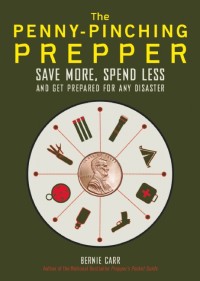Written by Allie Shaw
Normally, you expect the bulk of your monthly salary to go toward items like rent, cable, utilities, groceries, and childcare. It’s not fun, but it’s a part of being an adult. But maybe you want more of your money to stretch further. This article will cover ten common living expenses and will teach you the necessary tips to cut down on those expenses, letting more money go toward family emergencies and other household needs.
1. Rent
You might think you’re stuck with a high rental payment every month. But you aren’t. You possess power as a renter.
Tip: Examine your lease, looking for hidden costs like pet fees, maintenance charges, storage, and parking. These costs add up quickly, especially if you’re not benefiting from them, and should be discussed with your landlord.
2. Renters Insurance
While renter’s insurance may seem like a luxury item, you shouldn’t go without it because it protects your property and often offers some liability coverage.
Tip: Start by asking your auto insurance provider whether it provides a discount for bundling. If it doesn’t, shop around. Find the best renters insurance policy at a price you can afford, and you’ll be much more prepared for worst-case scenarios like fires and break-ins.
3. Utilities
Gas, electricity, and water bills sometimes feel like emergencies with their exorbitant price tags. While some of the costs, like a higher energy bill during the summer, are seasonal and normal, you should make sure you’re not accidentally wasting energy—and money.
Tip: Compare the numbers on your previous three to five bills. If the meter readings seem too high or too low, call your utility provider. Also, ask your landlord about installing smart home technologies like a shower timer or thermostat to minimize energy usage.
4. Cable, Internet, and Telephone
Cable, internet, and telephone bills also add up quickly, sometimes with no warning. Strange fees or price increases can make for a painfully expensive month.
Tip: As with your utilities, review the numbers. If you see any surprise fees on your bill, call your provider. Also, talk with your provider about options. New plans sometimes are available, as well as discounts for bundling. Finally, consider cable cutting. It saves money by getting rid of traditional cable in favor of streaming services like Netflix and Hulu.
5. Laundry
If you use your washer and dryer for more than one or two loads a week with expensive products, you could be adding a significant amount of cost to your yearly utility bills. Plus, some apartment complexes lack washer and dryer hookups, leaving you paying monthly laundry fees at either an on-site or off-site facility.
Tip: Energy.gov provides some suggestions to reduce your laundry expense, like always washing a full load. Also use cold water as much as possible. Empty the dryer lint too. Other people sometimes forget to clean it out, meaning you’ll run a load of laundry twice or more to get it dry.
6. Groceries
Depending on the number of people in your household and their ages, you could spend a small fortune on groceries every month. Teenage boys, for example, seem to possess bottomless stomachs.
Tip: Your goal may be to avoid huge grocery bills, but you can achieve a secondary one: eating well to prevent health issues. You can accomplish both aims by using an app like SavingStar (Apple and Android), planning weekly meals, and writing out a grocery list.
7. Entertainment
Stopping for coffee on the way to work may be convenient, but it increases your monthly expenses. The same thing occurs when grabbing lunch with co-workers on a regular basis or going to the movies three or more times a month.
Tip: To cut your coffee costs, buy a fancier coffeemaker, such as a French press, and make your espressos and cappuccinos at home. Also, pack healthier lunches for the week—it’ll improve your budget and physical well-being. Finally, if you can’t forego the monthly movies, at least cut the concessions or look into a movie pass.
8. Vehicle Costs
You can’t, and shouldn’t, avoid vehicle maintenance and repairs. Taking care of your car prevents costly repairs and roadside emergencies.
Tip: When it comes to your vehicle, compare different mechanics. They often employ different pricing models or offer rewards to loyal customers.
9. Gym Memberships
Gym memberships can be a sneaky expense because they sometimes use a subscription model. Others involve promo pricing.
Tip: First, are you actually using the membership? If you aren’t, cancel the membership and seek other alternatives to stay fit. Second, shop around. You can sometimes find better prices at a different gym or local community center.
10. Childcare
You love your kids, but they can be expensive. Between school supplies, childcare, and extracurricular activities, you may find your money stretched.
Tip: To cut costs on school supplies, take advantage of tax-free weekends or buy supplies on clearance and save them for the following year. For extracurricular clubs and childcare, you’ll need to shop around and perhaps limit the number of activities your kids participate in if it isn’t sustainable.
Monthly household expenditures add up. But now you can subtract down with the ten expenses and tips listed here. Once you do, put the money saved for emergencies and other purposes.
About the author:
Allie Shaw graduated from the University of Utah with degrees in communications and public relations. She is an expert in all things lifestyle and tech.
For more tips on prepping on a small budget, read my latest book:



because of my job I have rent an apartment and own a house. And ya I sucks at times. I save money by not having cable at either place. and I do not have a TV at the apartment. I have only a flip cell phone so my phone bill is very small. My heat is included in the apartment rent and I keep the heat down to 50 deg at the house. I have as little electrical things on at the house when I am not there and have a very low electrical bill at the apartment. I do my laundry at the apartment laundry room at very low cost. I do maximize my food usage and have little to no wastage. I make things like fish head soup. You would be surprised how much very good meat there is on a big fish head. You use the heads and bones to make a fish stock. I use a crockpot a lot to make soups and stews that I can bag up in ready meals. I reuse all the things I can for different purposes I use glass jars when I pour candles in them. tuna cans are reused and made into buddy burns or survival candles with 3 wicks. I do like shop at Goodwill for things I can use
Try Roku–a one time purchase of $35. We ditched cable years ago.
We get many free movie channels(with commercials) and pay for Amazon($8 a month) and Netflix ($11 a month). I watch what ‘I’ choose to watch any time.
My neighbor pays $90 a month for cable..
Hi JJ, The Roku is great. Cable really costs a lot to maintain- no longer have it either but I don’t feel I am missing out. Thanks for the comment!
Hey old guy- We keep our heat down low as well. I always thought fish heads are mostly boney with little meat! Thanks for the comment!
In regards to vehicle cost we all know those can run in the thousands, so the best way to keep the cost downs is to do regular services. If you really want to save than you need to learn how to take care of your car by doing some of those services yourself. Things such as regular change of oil, air filters, spark plugs and brake change can really save you money. The more you learn the more you save, there are plenty resources to help you out, mechanical books, YouTube videos and even forms. You just need be open to learning.
Hi Abraham, Car maintenance does cost a lot! It would save a bundle to learn how to do those tasks. Thanks for the comment.
The whole secret to saving money is to spend less. Learn the difference between needs and wants the control the spending on the wants. It’s really that simple
Hi poorman, So true – being able to spend on needs and control the wants is the key to saving more. Seeking that instant gratification instead of putting off the wants is what trips people up. Thanks for the comment.